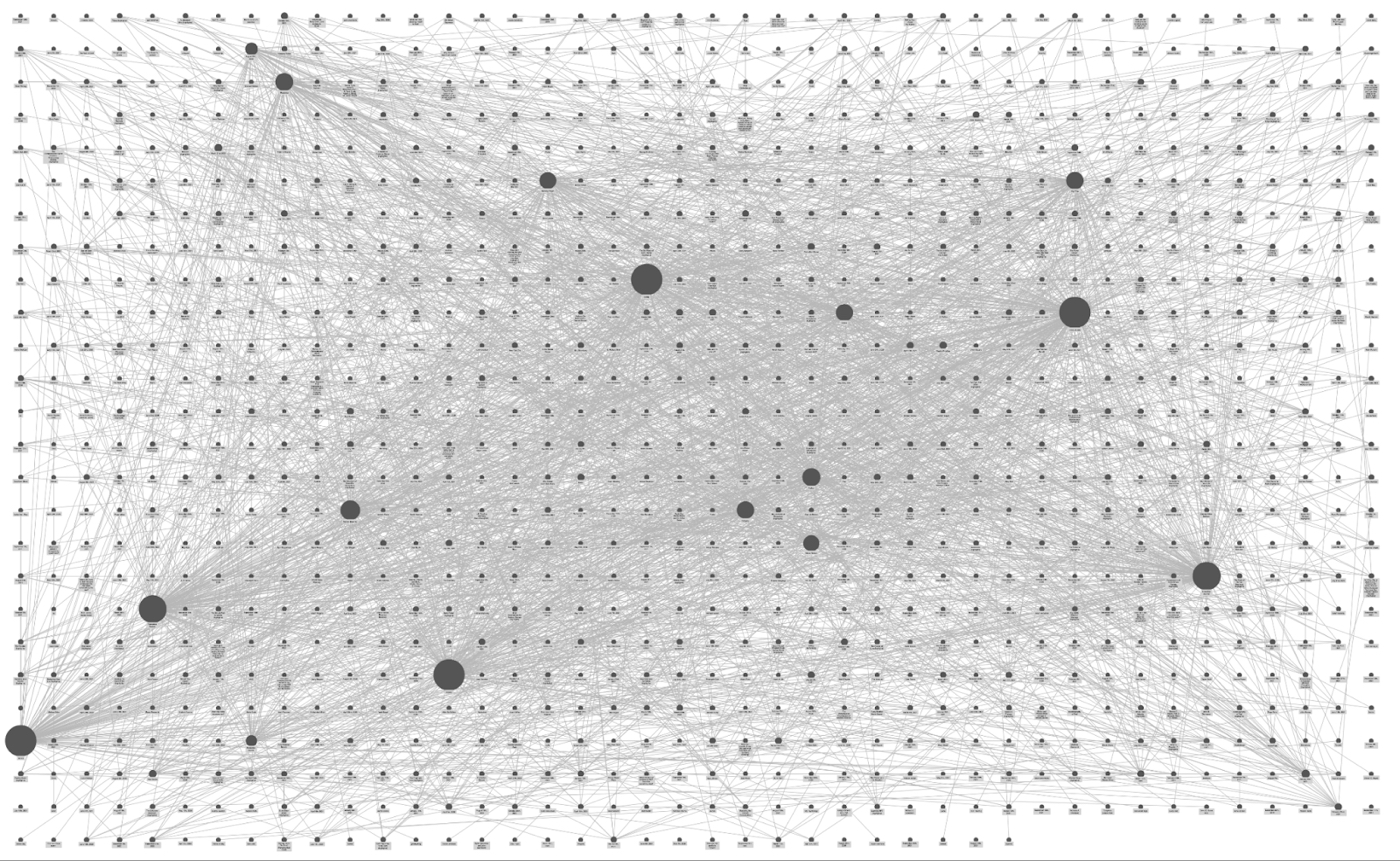
I used to use Roam every day, but I don’t use it much anymore. Based on what I can see on Twitter, and a casual survey of friends, I don’t think I’m alone.
A year ago, the idea of networking our notes with bi-directional links became the biggest thing in the tools for thought space since Vannevar Bush described the memex. Top-down hierarchies and tag systems became the pet explanation du jour for everything that was wrong with note-taking. So we all hustled on to the Double-Bracket Express determined to build our own networked knowledge graphs. But where did we actually go? At least for me—and most of the people I know—we got a garbage dump full of crufty links and pieces of text we hardly ever revisit. And we feel guilty and sad about it.
(It is a very appealing looking garbage dump, however.)
There are probably a host of reasons why this happened: Roam’s product velocity seems to be incredibly slow, there still isn’t really a good mobile experience, they’ve had well-documented community issues—the list goes on.
But there’s one main reason that I don’t use it anymore:
When I write my notes the thought, ‘Where am I going to put this?’ plagues me every time. It’s a direct and immediate pain. And it sometimes gets in the way of me even taking notes at all. I have this sensation many times a day and it’s deeply uncomfortable.
Roam’s job was to get rid of that pain. And it did—for a while. But now it’s back.
. . .
The core idea that caught on with Roam is the concept of a bidirectional link. Previous note-taking systems allowed linking in only one direction: you could link from one note to another, but the note being linked to had no automatic link back to the original note.
Bi-directional linking, by contrast, creates a link from the first note to the second, and from the second to the first automatically. Roam made this extremely easy to accomplish—just by typing pieces of your notes in [[ brackets ]] you could link between notes, and even create new ones if the note you were linking to didn’t already exist.
The idea was to create a highly-networked system of notes with lots of links between them. By doing so, you could increase serendipitous encounters with old notes, and decrease your risk of losing a note, and generally get more out of the whole note-taking experience, or indeed life itself:
I believed that if I used it, I’d learn more from my experiences because I wouldn’t forget them. I’d take away more lessons from the books I’d read because I’d always have them close at hand. I’d make better decisions, produce better writing, and maybe my hair would even start to look as lustrous as Conor’s.
(Side-by-side comparison. How am I doing on the hair part?)There’s a ton of intelligence and deep thought behind Roam’s design. But did it actually work for me?
The Only Subscription
You Need to
Stay at the
Edge of AI
The essential toolkit for those shaping the future
"This might be the best value you
can get from an AI subscription."
- Jay S.
Join 100,000+ leaders, builders, and innovators

Email address
Already have an account? Sign in
What is included in a subscription?
Daily insights from AI pioneers + early access to powerful AI tools














Comments
Don't have an account? Sign up!
I loved this writeup, Dan! Not to point you at another shiny toy, but I believe Obsidian picks up where Roam falls off — and, more importantly, using it with Nick Milo’s “Linking Your Thinking” note *making* strategy. This approach has been a game changer for me (for now?)!
; I ve been trying to figure out why I've been moving away from Roam --I loved the case of writing through the day, but somehow it didn't work, "that back linking thing, I don't get it" --I wasn't going back to old notes, and I couldn't easily find things. Bingo you said it. THANK YOU Im now trying Milo's obsidiean method but so far it may have a similar problem. I use building a second brain and everything makes sense there --so why do I keep trying other, less comprehensive systems where I can't easy find anything?
I'm sorry for your disillusionment and appreciate your open and honest commentary on this.
I was also tempted by Roam, but I'm confident and grateful I dodged a bullet given the alarming number of red flags I saw at the time.
I've ended up mostly-happily using Notion. Is it perfect? Nope. But it's improving, it has very broad usage across many demographics, the company is apparently profitable, and -- of particular note -- I felt more comfortable with the community and company behind Notion.
More specifically, with Notion, people are excited about and in some cases loyal to *a piece of software and the broader community that uses it* vs. worshipping an individual and a way of life. And that's a far more healthy foundation upon which to grow both a tool & and community!
I think the digital note taking experience and knowledge work in general still has a lot of simplification to go. Roam power users are leading the charge for sure, but to make it your own it takes a lot of sustained effort, new habits and almost an obsession to the platform to make it all work. It's a high bar but if you do it can work wonders for coming up with insights.
Personally, I've replaced Roam with Obsidian as it gives you bi-directional linking and hierarchical file structures. As for the feeling of infinitesimal time spent on backlick creation and lack of on reviews. I've found Andy Matuschak's ideas on Evergreen notes and incremental writing are great concepts to build blocks of knowledge as you synthesise and then plug together to form bigger, deeper concepts. Worth looking into!
Similar to my experience. Got excited at first but losing interest. Feels too cumbersome for me. Product’s forward motion too slow. Still looking for a more practical way of taking notes on books I am reading. Time to try something else.
I am glad I am not the only one pulling my hair out whenever I try to search in Roam